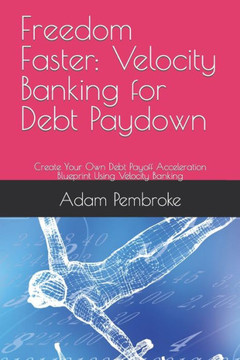
Createspace Independent Publishing Platform
The Road To Debt Bondage : How Banks Create Unpayable Debt
Product Code:
9781725895249
ISBN13:
9781725895249
Condition:
New
$10.65

The Road To Debt Bondage : How Banks Create Unpayable Debt
$10.65
There are three main types of money: currency, bank deposits, and central bank reserves. ...Most money in the modern economy is in the form of bank deposits, which are created by commercial banks themselves. Bank of England, Money in the Modern Economy (2014) "The most outstanding fact of the last depression is the destruction of 8 billion dollars - over a third - of our "check-book money" - demand deposits." Irving Fisher, 100% Money and the Public Debt (1936) "The process by which banks create money is so simple that the mind is repelled." John K Galbraith, Money: Whence it Came, Where it Went (1975) Commercial banks create the money supply in the form of the deposit account money supply: by making repayable loans of newly-created bank deposits to private sector loan account debtors and to government bond debtors. Making a bank loan or bond purchase creates a linked pair of credits/debts: a new spendable, cashable, credit balance (a new bank deposit: e.g. +$1000) in the debtor''s bank deposit account; and an equal new interest-bearing debt balance (-$1000) in the debtor''s bank loan or bond account. Debtors spend their new bank loans and bond sale proceeds. Debtors pay the new bank deposits to payees -- by check, direct deposit, online banking, debit card, etc -- within the bank-operated payments system. The new credit balances are debited out of the debtors'' bank deposit account balances and credited into the first payees'' bank deposit account balances. That''s where the deposit account money supply -- the spendable, investible, saveable (and cashable) credit balances in our bank deposit accounts -- comes from, in the first place. Then payees create the spendable cash money supply by making cash withdrawals, and paying with debits to our deposit account credit balances. But most bank deposits are never cashed out. Most money never exists in any other form than credit balances -- bank deposits: the deposit account money supply -- in payees'' bank deposit accounts. Debtors owe the deposit account money supply back to their creditor-banks, as payment of the debtors'' loan account and bond debt balances. Repaying a bank loan, or redeeming a bank-held bond, un-creates -- extinguishes; cancels out to $0/$0 -- the deposit account credit balance (+$1000) and the loan account or bond debt balance (-$1000) that were created by making the bank loan or bond purchase. But debtors can''t pay their debt balances because payees have all the credit balances. The Road to Debt Bondage describes in plain language how the commercial banks'' creditor-assets/debtor-liabilities "balance sheet" money supply creation system works; and how it creates ever-increasing totals of creditors'' uncollectable credit balances owed as debtors'' unpayable debt balances (1914-1929; 1939-2008) until the banking system Collapses in financial crisis. Financial crisis is historically resolved by writing off our deposit account credit balances to relieve the commercial banking system of its unpayable deposit liability debt balances. Which is what bankruptcy Trustees did in the 1930s. And which the Dodd-Frank debt-for-equity swaps program (depositor bail-ins) plans to do this time. Which plunges the spending-driven producer-consumer economy into Debt-Deflation Depression by writing off ruinous amounts of commercial banks'' unpayable deposit liability debts -- which used to be our spendable deposit account "money supply". The book shows how monetary system reform -- government issuance of debt-free (non-repayable) money that breaks the banks'' longstanding monopoly of debt-based money supply issuance -- can make debtors'' unpayable debts payable, which makes banks'' uncollectable earning assets collectable, which makes banks'' unpayable deposit liability debts payable, which prevents the otherwise inevitable banking system failure and eliminates the need to write off our ''money in the bank''.
| Author: Derryl Hermanutz |
| Publisher: Createspace Independent Publishing Platform |
| Publication Date: Aug 22, 2018 |
| Number of Pages: 120 pages |
| Language: English |
| Binding: Paperback |
| ISBN-10: 1725895242 |
| ISBN-13: 9781725895249 |





